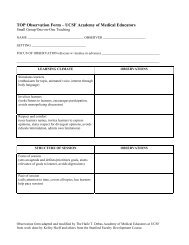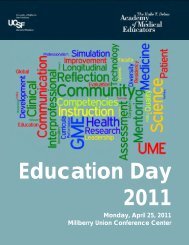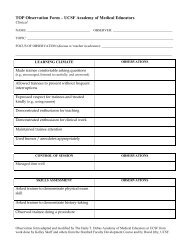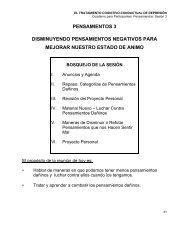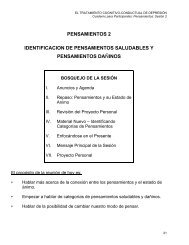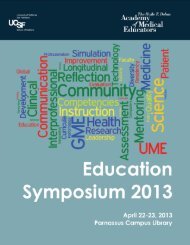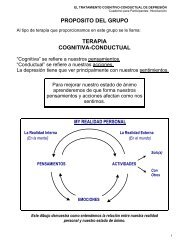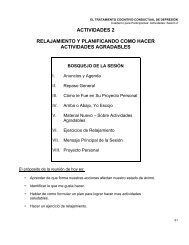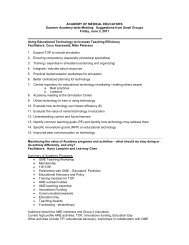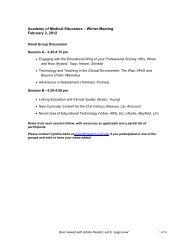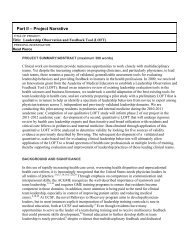The Healthy Management of Reality - Stanford University
The Healthy Management of Reality - Stanford University
The Healthy Management of Reality - Stanford University
Create successful ePaper yourself
Turn your PDF publications into a flip-book with our unique Google optimized e-Paper software.
<strong>The</strong> objective past had not changed, <strong>of</strong> course. But she now could rememberit from a different vantage point. And she could access those aspects <strong>of</strong> the pastthat linked her with her son in a way that was much healthier for her, and morefruitful for their ongoing relationship. For even after we lose someone, we doretain a connection to him or her, even if only in our minds. And the nature <strong>of</strong> thatconnection, <strong>of</strong> that relationship in the realm <strong>of</strong> our internal world, has an influenceon how we feel about ourselves, and how we relate to others. In this patient's case,I surmise that her ability to be emotionally available to her younger children hadbeen impaired by the severe trauma she had undergone. I imagine that fears aboutlosing another child may have made it hard for her to truly bond with them.Changing the past she remembered might have had a major impact on shaping hercurrent reality as an individual and as a mother.Since then, I have been more alert to how the way we remember past eventsaffects our current stance toward the world. And I am much more likely toremember that our memories are not carved in stone. <strong>The</strong>y are malleable to someextent, and it is <strong>of</strong>ten worthwhile to test how malleable they are.HMOR.July2005.Muñoz.doc 48



